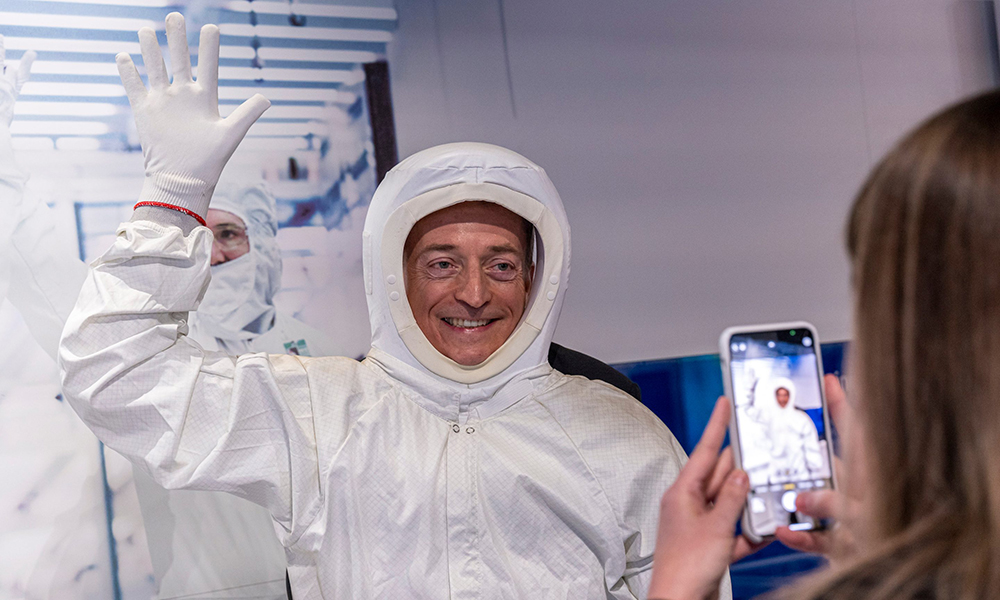
芯片制造商英特爾(Intel)的CEO帕特·基辛格周一突然辭職,,這讓他四年來(lái)為幫助公司擺脫困境所做的努力付諸流水,也讓他失去了獲得價(jià)值1.4億美元的巨額股票獎(jiǎng)勵(lì)的機(jī)會(huì),。
但基辛格并非毫無(wú)收獲:根據(jù)一位薪酬專家為《財(cái)富》雜志所做的分析,,包括離職補(bǔ)償金在內(nèi),基辛格在領(lǐng)導(dǎo)英特爾期間將賺到至少4,600萬(wàn)美元,。
根據(jù)英特爾的文件,,基辛格將獲得700萬(wàn)至1,000萬(wàn)美元離職補(bǔ)償金。除此之外,,根據(jù)高管薪酬數(shù)據(jù)分析公司Equilar的計(jì)算,,他自2021年以來(lái)已經(jīng)實(shí)現(xiàn)了3,870萬(wàn)美元薪酬,其中包括了工資、獎(jiǎng)金,、已歸屬的股票和已行使的股票期權(quán)等,。
這筆豐厚的薪酬體現(xiàn)了英特爾對(duì)基辛格的高度期望。這位英特爾元老和科技創(chuàng)業(yè)者在2021年被任命為CEO,。面對(duì)公司56年歷史上最嚴(yán)重的危機(jī)之一,,這家標(biāo)志性的芯片制造商希望他能力挽狂瀾,扭轉(zhuǎn)公司的命運(yùn),。
與此同時(shí),,隨著英特爾股價(jià)暴跌以及英偉達(dá)(Nvidia)和臺(tái)積電(TSMC)等競(jìng)爭(zhēng)對(duì)手繼續(xù)高歌猛進(jìn),基辛格未能獲得基于績(jī)效的股票獎(jiǎng)勵(lì),,則凸顯出他在執(zhí)行拯救任務(wù)時(shí)面臨的困難,。
今年迄今為止,英特爾的股價(jià)下跌了52%,,而納斯達(dá)克指數(shù)上漲了29%,。自基辛格于2021年1月被任命為CEO以來(lái),英特爾的股價(jià)下跌了約55%,。
根據(jù)Equilar研究總監(jiān)考特尼·余的說(shuō)法:“由于未能達(dá)到績(jī)效目標(biāo)以及過(guò)去幾年英特爾股價(jià)下跌,,他的實(shí)際薪酬大幅縮水?!?/p>
根據(jù)余的分析,基辛格在擔(dān)任CEO的第一年,,從非股權(quán)激勵(lì)計(jì)劃中獲得的收入達(dá)到最高水平,。在2021財(cái)年,基辛格基于績(jī)效的獎(jiǎng)勵(lì)為510萬(wàn)美元,,2022財(cái)年為945,900美元,,2023財(cái)年為290萬(wàn)美元。
苦樂(lè)參半的告別
周一,,英特爾宣布基辛格退休,,并任命兩位臨時(shí)聯(lián)席CEO,在公司尋找正式CEO替代者期間掌舵,,這讓華爾街感到震驚,。基辛格是英特爾的元老,,他在2021年回歸公司擔(dān)任CEO,,之前曾擔(dān)任過(guò)十年VMware的領(lǐng)導(dǎo)者。他在聲明中表示,,這一時(shí)刻是“苦樂(lè)參半的”,,并承認(rèn)這一年充滿挑戰(zhàn)。
雖然英特爾和基辛格將他的離職描述為退休,,但彭博社報(bào)道稱,,這位63歲的CEO實(shí)際上是迫于董事會(huì)的壓力離職,,因?yàn)槎聲?huì)對(duì)公司轉(zhuǎn)型的進(jìn)展逐漸失去耐心。根據(jù)英特爾的說(shuō)法,,基辛格有資格獲得相當(dāng)于18個(gè)月基本工資(按年基本工資125萬(wàn)美元計(jì)算)的離職補(bǔ)償金,,以及1.5倍的年度目標(biāo)獎(jiǎng)金(年基本工資的275%)。他還將獲得2024年11個(gè)月的年度獎(jiǎng)金,。
基辛格的總薪酬在2021年達(dá)到1.79億美元,,在公司領(lǐng)導(dǎo)層中名列前茅。當(dāng)時(shí),,Expedia集團(tuán)的彼得·科恩以2.96億美元的薪酬位居Equilar的CEO薪酬研究榜榜首,,該研究衡量了標(biāo)普500公司的高管總薪酬。華納兄弟探索公司(Warner Bros. Discovery)的大衛(wèi)·扎斯拉夫以2.47億美元排在第二位,,其次是ServiceNow的威廉·麥克德莫特,,薪酬為1.66億美元。(基辛格不在名單上,,因?yàn)樵摪駟沃话ㄔ诼氈辽賰赡甑腃EO,。)
當(dāng)然,這些薪酬中的大部分是與績(jī)效目標(biāo)掛鉤的股權(quán),。例如,,余解釋稱,基辛格在上任時(shí)獲得了210萬(wàn)期權(quán)和330萬(wàn)績(jī)效股票單位,。但這些股票只有在英特爾股價(jià)至少上漲30%時(shí)才會(huì)生效——可惜這并沒(méi)有發(fā)生,。
余表示:“顯然,他沒(méi)有從這些股票中獲得任何價(jià)值,?!保ㄘ?cái)富中文網(wǎng))
譯者:劉進(jìn)龍
審校:汪皓
芯片制造商英特爾(Intel)的CEO帕特·基辛格周一突然辭職,這讓他四年來(lái)為幫助公司擺脫困境所做的努力付諸流水,,也讓他失去了獲得價(jià)值1.4億美元的巨額股票獎(jiǎng)勵(lì)的機(jī)會(huì),。
但基辛格并非毫無(wú)收獲:根據(jù)一位薪酬專家為《財(cái)富》雜志所做的分析,包括離職補(bǔ)償金在內(nèi),,基辛格在領(lǐng)導(dǎo)英特爾期間將賺到至少4,600萬(wàn)美元,。
根據(jù)英特爾的文件,基辛格將獲得700萬(wàn)至1,000萬(wàn)美元離職補(bǔ)償金,。除此之外,,根據(jù)高管薪酬數(shù)據(jù)分析公司Equilar的計(jì)算,他自2021年以來(lái)已經(jīng)實(shí)現(xiàn)了3,870萬(wàn)美元薪酬,,其中包括了工資,、獎(jiǎng)金、已歸屬的股票和已行使的股票期權(quán)等。
這筆豐厚的薪酬體現(xiàn)了英特爾對(duì)基辛格的高度期望,。這位英特爾元老和科技創(chuàng)業(yè)者在2021年被任命為CEO,。面對(duì)公司56年歷史上最嚴(yán)重的危機(jī)之一,這家標(biāo)志性的芯片制造商希望他能力挽狂瀾,,扭轉(zhuǎn)公司的命運(yùn),。
與此同時(shí),隨著英特爾股價(jià)暴跌以及英偉達(dá)(Nvidia)和臺(tái)積電(TSMC)等競(jìng)爭(zhēng)對(duì)手繼續(xù)高歌猛進(jìn),,基辛格未能獲得基于績(jī)效的股票獎(jiǎng)勵(lì),,則凸顯出他在執(zhí)行拯救任務(wù)時(shí)面臨的困難。
今年迄今為止,,英特爾的股價(jià)下跌了52%,,而納斯達(dá)克指數(shù)上漲了29%。自基辛格于2021年1月被任命為CEO以來(lái),,英特爾的股價(jià)下跌了約55%,。
根據(jù)Equilar研究總監(jiān)考特尼·余的說(shuō)法:“由于未能達(dá)到績(jī)效目標(biāo)以及過(guò)去幾年英特爾股價(jià)下跌,他的實(shí)際薪酬大幅縮水,?!?/p>
根據(jù)余的分析,基辛格在擔(dān)任CEO的第一年,,從非股權(quán)激勵(lì)計(jì)劃中獲得的收入達(dá)到最高水平,。在2021財(cái)年,基辛格基于績(jī)效的獎(jiǎng)勵(lì)為510萬(wàn)美元,,2022財(cái)年為945,900美元,,2023財(cái)年為290萬(wàn)美元。
苦樂(lè)參半的告別
周一,,英特爾宣布基辛格退休,并任命兩位臨時(shí)聯(lián)席CEO,,在公司尋找正式CEO替代者期間掌舵,,這讓華爾街感到震驚?;粮袷怯⑻貭柕脑?,他在2021年回歸公司擔(dān)任CEO,之前曾擔(dān)任過(guò)十年VMware的領(lǐng)導(dǎo)者,。他在聲明中表示,,這一時(shí)刻是“苦樂(lè)參半的”,并承認(rèn)這一年充滿挑戰(zhàn),。
雖然英特爾和基辛格將他的離職描述為退休,,但彭博社報(bào)道稱,這位63歲的CEO實(shí)際上是迫于董事會(huì)的壓力離職,因?yàn)槎聲?huì)對(duì)公司轉(zhuǎn)型的進(jìn)展逐漸失去耐心,。根據(jù)英特爾的說(shuō)法,,基辛格有資格獲得相當(dāng)于18個(gè)月基本工資(按年基本工資125萬(wàn)美元計(jì)算)的離職補(bǔ)償金,以及1.5倍的年度目標(biāo)獎(jiǎng)金(年基本工資的275%),。他還將獲得2024年11個(gè)月的年度獎(jiǎng)金,。
基辛格的總薪酬在2021年達(dá)到1.79億美元,在公司領(lǐng)導(dǎo)層中名列前茅,。當(dāng)時(shí),,Expedia集團(tuán)的彼得·科恩以2.96億美元的薪酬位居Equilar的CEO薪酬研究榜榜首,該研究衡量了標(biāo)普500公司的高管總薪酬,。華納兄弟探索公司(Warner Bros. Discovery)的大衛(wèi)·扎斯拉夫以2.47億美元排在第二位,,其次是ServiceNow的威廉·麥克德莫特,薪酬為1.66億美元,。(基辛格不在名單上,,因?yàn)樵摪駟沃话ㄔ诼氈辽賰赡甑腃EO。)
當(dāng)然,,這些薪酬中的大部分是與績(jī)效目標(biāo)掛鉤的股權(quán),。例如,余解釋稱,,基辛格在上任時(shí)獲得了210萬(wàn)期權(quán)和330萬(wàn)績(jī)效股票單位,。但這些股票只有在英特爾股價(jià)至少上漲30%時(shí)才會(huì)生效——可惜這并沒(méi)有發(fā)生。
余表示:“顯然,,他沒(méi)有從這些股票中獲得任何價(jià)值,。”(財(cái)富中文網(wǎng))
譯者:劉進(jìn)龍
審校:汪皓
Pat Gelsinger’s surprise resignation as Intel’s CEO on Monday ends his four-year effort to rescue the struggling chipmaker—and his chance to snag a massive stock payday that could have been worth $140 million.
Gelsinger is not exactly leaving empty-handed though: He’ll have earned at least $46 million, including severance, for his time leading Intel, according to an analysis for Fortune by a compensation expert.
Gelsinger is set to receive between $7 million and $10 million in severance, according to a filing by Intel. That’s on top of the $38.7 million in compensation that he’s already realized since 2021, consisting of salary, bonus, and vested stock, and exercised stock options, according to calculations by executive compensation data firm Equilar.
The hefty pay package reflects the high hopes invested in Gelsinger, an Intel veteran and tech entrepreneur, who was tapped in 2021 to revive the iconic chipmaker’s fortunes amid one of the worst crises in its 56-year history.
The payday that Geslinger never earned in the form of performance-based stock, meanwhile, underscores the difficulty he faced carrying out his rescue mission as Intel’s stock cratered and competitors like Nvidia and TSMC forged ahead.
Intel shares are down 52% so far this year, versus the Nasdaq’s 29% gain. Intel’s stock has fallen roughly 55% since Gelsinger was appointed CEO in January 2021.
“His realized pay is much lower because of not attaining performance goals and the decreasing stock price of Intel over the past few years,” according to Courtney Yu, director of research for Equilar.
Gelsinger’s income from nonequity incentive plan payments peaked during Gelsinger’s first year as CEO, according to Yu’s analysis. Those performance-based rewards ranged from $5.1 million in fiscal year 2021, to $945,900 in 2022 and $2.9 million in 2023.
A bittersweet goodbye
Intel shocked Wall Street on Monday when it announced that Gelsinger was retiring and that it had appointed two interim co-CEOs to steer the ship as it conducted a search for a permanent CEO replacement. Gelsinger, an Intel veteran who spent a decade leading VMware before rejoining the company as CEO in 2021, said in a statement that the moment was “bittersweet” and acknowledged a challenging year.
While Intel and Gelsinger described his move as a retirement, Bloomberg reported that the 63-year-old CEO had effectively been forced out by the board, which was growing impatient with the turnaround. According to Intel, Gelsinger is eligible to receive a severance payment worth 18 months of his annual base salary of $1,250,000, as well as 1.5 times his annual target bonus, which is set at 275% of his base salary. He’s also entitled to 11/12th of his 2024 annual bonus.
At its peak of $179 million in 2021, Gelsinger’s total compensation package was among the highest for corporate leadership. At the time, Expedia Group’s Peter Kern was earning $296 million and topped Equilar’s CEO Pay Study, which measures total compensation for the S&P 500. Next was David Zaslav of Warner Bros. Discovery at $247 million, followed by ServiceNow’s William McDermott making $166 million. (Gelsinger was not on the list because it included only CEOs who had been on the job at least two years.)
Of course, much of that compensation was in the form of equity tied to performance targets. For example, Gelsinger received 2.1 million options and 3.3 million performance stock units when he started, Yu explains. But they would vest only if Intel’s stock price grew by at least 30%—something that did not happen.
“He’ll obviously not realize any value from those,” said Yu.






